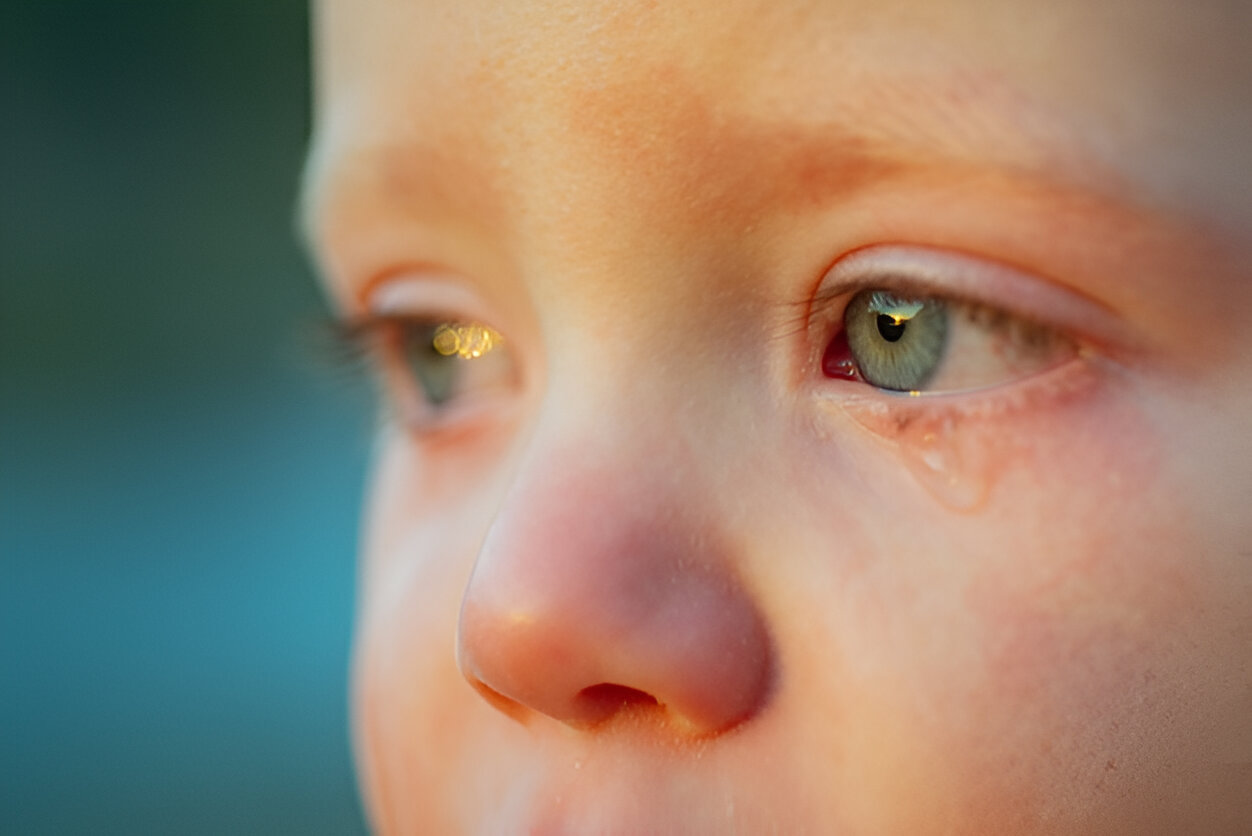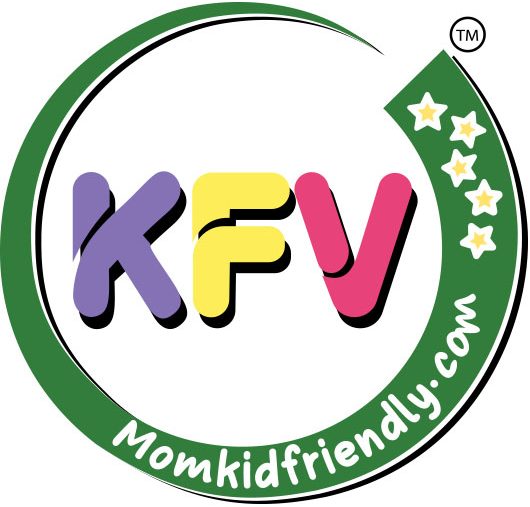
Babies are delicate beings, and as parents, we constantly worry about their health and well-being. One common issue that many parents face is their baby’s eyes watering. In most cases, watery eyes in babies are completely normal and nothing to worry about. However, it may occasionally indicate a deeper underlying issue.
Today, you’ll learn about why your baby’s eyes are watering, what causes it, and when you should seek medical attention.
What does it mean when a baby eyes are watering?
When a baby eyes are watering, it means that tears are constantly flowing out of their eyes and onto their cheeks. This can be seen as excessive tear production or a lack of proper drainage. In most cases, it is not a cause for concern and is a natural way for the eyes to cleanse and lubricate themselves.
You may also need: How to Stop Acidic Poop in Babies
Common Causes of Watery Eyes in Babies
Your baby’s watery eyes can be caused by a variety of reasons. Some of the most common causes include:
Tear ducts not fully developed:
In newborns, the tear ducts may not be fully developed yet, causing tears to overflow and spill out onto their cheeks. This is completely normal and usually resolves on its own as your baby’s tear ducts mature.
However, if your baby’s eyes continue to water excessively after four months of age, it’s best to consult a doctor.
Allergies:
Babies can also have allergies just like adults, and this can cause their eyes to water. Common allergens that can trigger watery eyes in babies include dust, pet dander, mold, and pollen.
Blocked Tear Ducts:
In some cases, a baby’s tear ducts may become blocked or partially obstructed. This can cause tears to spill out of the eyes instead of being drained properly. Blocked tear ducts are common in newborns and usually resolve on their own within the first year of life.
Eye Infections:
Babies are more susceptible to eye infections due to their underdeveloped immune system. These infections can cause redness, irritation, and excessive watering of the eyes. If you notice any signs of infection such as discharge or crusting around the eye area, seek medical attention immediately.
Irritants:
Environmental irritants can make your baby eyes water. Cigarette smoke, perfumes, soaps, or wind can irritate delicate newborn eyes. Try to keep your baby away from these triggers as much as possible.
Cold or Flu:
Just like adults, when babies catch a cold or the flu, their eyes might water. The body can produce excess tears in response to the infection, and this can cause watery eyes.
As you can see, there are various causes for watery eyes in babies. In most cases, it is completely normal and nothing to worry about.
When Should You Worry About Watery Eyes in Babies?
Usually, if your baby seems happy and healthy, watery eyes are nothing to panic about. But as a parent, it’s important to watch for signs that something more serious may be going on. You should contact your pediatrician if:
- The watering is constant and doesn’t improve over a few weeks.
- You notice redness, swelling, or a yellow/green discharge from your baby’s eye.
- Your baby’s eyelids seem stuck together, especially after sleep.
- Your baby has a fever or seems unwell along with watery eyes.
- There is difficulty opening the eye, persistent fussiness, or signs of discomfort.
How to Help Your Baby at Home
If you’re wondering why are my baby’s eyes watering and doctors say everything is fine, there are steps you can take at home:
- Keep the area clean: Gently wipe away tears or discharge with a soft, damp cloth. Use a different part of the cloth for each eye to prevent spreading infection.
- Use saline drops: If advised by your doctor, saline eye drops can help flush away irritants or crusting.
- Practice gentle tear duct massage: Some doctors recommend gently massaging the area between your baby’s eye and nose to help open blocked tear ducts. Always ask your pediatrician before trying this.
- Avoid potential irritants: Keep your baby away from cigarette smoke, strong fragrances, and dusty areas.
- Humidify the air: A cool-mist humidifier in your baby’s room can help soothe irritated eyes, especially in dry climates. Just be sure to clean and change the water regularly to prevent bacterial growth.
- Use warm compresses: Applying a warm, damp cloth to your baby’s closed eye for a few minutes can help loosen and clear any blocked tear ducts.
Read More: Why Does My Baby Cry While Eating
Preventing Eye Issues in Babies
While you can’t always prevent watery eyes, some simple steps may reduce the risk:
- Wash your hands before touching your baby eyes.
- Avoid letting anyone with a cold or eye infection handle your baby.
- Keep your baby’s face clean and dry.
- Regularly sanitize toys and surfaces your baby touches.
- Take precautions to reduce exposure to irritants such as smoke, strong fragrances, and dusty areas.
- Humidify the air in your baby’s room if the air is dry.
- Protect your baby’s eyes from bright sunlight with a hat or sunglasses.
My Experience with My Baby’s Eyes Watering
When I first became a parent, I didn’t realize how important it was to take care of my baby’s eye health. As a new mother, there were so many things to learn and worry about that I often overlooked the small details like washing my hands before touching my baby’s eyes.
As a result, my baby’s eyes started watering and becoming red. I was worried and didn’t know what could be causing it. After consulting with my pediatrician, I learned that it was due to a mild case of conjunctivitis, commonly known as pink eye.
Then I followed all the tips that i mentioned above and within a few days, my baby’s eyes were back to normal. It was then that I realized the importance of taking care of my baby’s eye health on a daily basis.
Final Thoughts
Watery eyes in babies can be worrying for parents, but in most cases, it’s a normal part of growth. Remember, when you ask, “Why are my baby’s eyes watering?” the answer is usually simple and harmless. However, stay observant and speak to a healthcare professional if you’re concerned.
If your baby’s eyes water constantly or show signs of infection don’t hesitate to reach out for medical advice. Your attention and care are the best things you can provide for your little one’s comfort and health.
Frequently Asked Questions
Is it normal for newborn eyes to water?
Yes, it’s quite common for newborns to have watery eyes, especially in the first few months. Usually, it’s due to the tear ducts that aren’t fully open yet.
Can teething cause watery eyes?
While uncommon, some babies might develop watery eyes while teething. This is typically a temporary issue and not a cause for concern.
How long do blocked tear ducts last?
Most blocked tear ducts clear up within the first year of life without treatment. However, if your baby’s tear ducts are still blocked after their first birthday, it’s best to consult with a doctor. They may recommend a procedure to open the blocked duct or prescribe eye drops to help with the symptoms.
What if my baby’s watery eyes don’t go away?
If your baby’s watery eyes persist after their first birthday, it’s important to consult with a doctor. They will be able to determine the cause and provide appropriate treatment. In certain situations, surgery might be required to resolve the problem.
